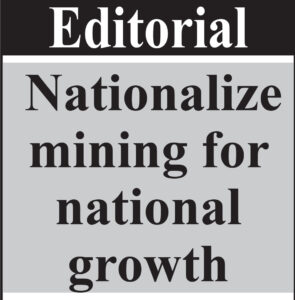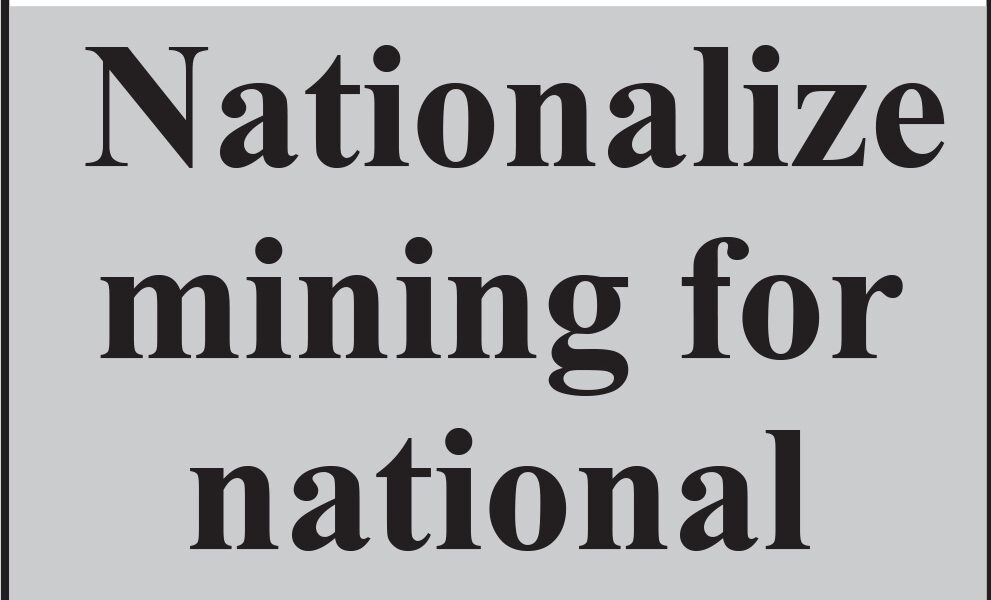
South Sudan’s mineral wealth and other valuable resources provide the nation with an opportunity to stabilize the economy and empower local communities.
However, the sector remains vulnerable to exploitation by private entities and foreign interests as recently highlighted by a national lawmaker.
Nationalizing the sector provides a way to curb foreign exploitation. It is not just a political gesture but a strategic move. The country can reap more on non-oil revenue and reinvest the proceeds into public infrastructure, education, and healthcare. The gold reserves could serve as a stabilizing force for the currency and offer a buffer against inflation.
True, there is real challenge that lies deeper on how South Sudan invests in its mining sector and manages it responsibly amid the deep-rooted malpractices such as unregulated extraction, and vague licensing processes.
The mining industry has for many years been marred unregulated private companies and foreign actors have reaped enormous profits, often at the expense of local communities. Coupled with weak government oversight, the exploitation means the country’s natural resources have not driven meaningful economic progress.
Instead, the country’s currency continues to struggle, the economy continues to rely on oil revenue and the promise of mineral wealth continues to remain largely untapped.
This trajectory can change if the South Sudan prioritizes improving infrastructure so that mineral-rich areas become accessible through improved road networks which will potentially open new economic opportunities for rural communities.
Critically, the government should focus on developing local capacity. Equipping South Sudanese with mining knowledge does not only reduce reliance on foreign expertise but also ensure that mining benefits remain in local hands.
This way, the country can create jobs, retain more value locally, and safeguard national interests.
If managed with vision and integrity, the sector can serve as a cornerstone for economic stability.




